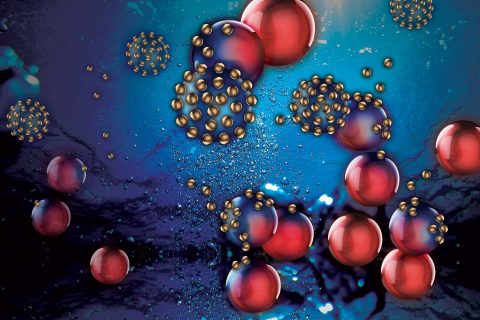Physics (MSc)
Program overview
The MSc in Physics is focused on research activities, complemented by a few advanced courses, which examine the fundamental and applied concepts of either physics or biomedical physics. Our researchers have expertise in theoretical and experimental condensed matter physics including quantum- and nano- materials, human biomedical physics, molecular biophysics, theoretical particle physics, laser optics and photonics, molecular modeling/computational physics and physics education and cultivate strong student-supervisor relationships. Many of us are members of various research centres that promote interdisciplinary collaborations in nano-, molecular and life sciences. Our Department has state of the art facilities for medical imaging, molecular biophysics, optical spectroscopy, photonics and low-temperature transport measurements, among others.
Program structure
Degree Requirements
Fully-qualified candidates are required to complete a minimum of 45 credits.
Please see the Physics Courses page for course descriptions.
Physics MSc (45 credits)
| 9 | credits chosen from Physics MSc courses |
| 3 | credits:
|
| 33 | credits:
|
Physics MSc Courses
Students may, with permission of their supervisor, take courses from the following list:
|
Admission requirements
Admission Requirements
- Honours degree, or its equivalent in Physics or a related field.
- Proficiency in English. Applicants whose primary language is not English must demonstrate that their knowledge of English is sufficient to pursue graduate studies in their chosen field. Please refer to the English language proficiency page for further information on requirements and exemptions.
Application process
Application deadlines

FALL
February 1 (Canadian resident)
January 15 (U.S. and international)

WINTER
September 1 (Canadian resident)
June 1 (U.S. and international)

SUMMER
n/a
Priority will be given to complete applications submitted by the deadline. In some cases, programs may continue to accept applications as long as there is space available.
International students: Considering the waiting period involved in meeting the entry requirements to Canada and Quebec, we strongly encourage international applicants to apply early and submit supporting documents prior to the deadline.
Tuition & funding
Tuition and fees
Tuition and fees of the program may depend on your student status, among other key factors. Estimate these costs based on the most common situations.
Awards and funding
Funding packages are generally available for students in thesis-based programs. They come in the form of awards, teaching and research assistantships are offered at the time of admission to most students to allow them to focus on their research and studies. Research and thesis-based students are automatically considered for all entrance graduate awards when they apply to Concordia, provided they meet eligibility criteria. No separate application is required.
The Quebec and Canadian governments offer a number of competitive graduate scholarships. We encourage you to apply for these awards at the same time you are preparing your application.
Out-of-province students
Get $10,000 in special funding for thesis master's programs. Learn more
Other programs of interest

Interdisciplinary Master's program between Science and Engineering where students do research at the forefront of nanoscience and nanotechnology.
Departments
Department of Chemical and Materials Engineering, Department of Chemistry and Biochemistry, Department of Physics
Faculties
Faculty of Arts & Science, Gina Cody School of Engineering and Computer Science

